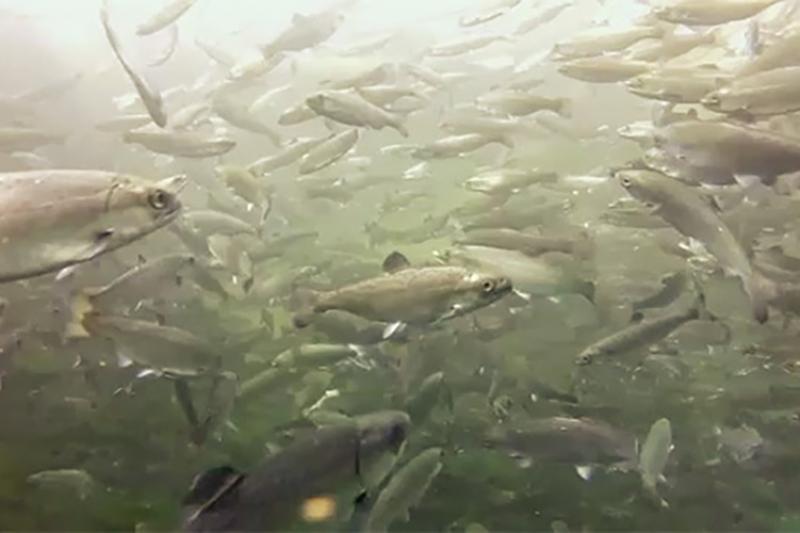A request by Alaskan Native groups for NMFS emergency action on salmon bycatch in the Bering Sea pollock fishery has been denied by the agency, saying the petition in effect asks for closure of the fishery, and would not address recent salmon run failures in western Alaska.
The request was submitted on Dec. 21 by Kawerak, Inc., the Association of Village Council Presidents, the Kuskokwim River Inter-Tribal Fish Commission, the Yukon River Inter-Tribal Fish Commission, the Aleut Community of St. Paul Island, and the Bering Sea Elders Group.
“It effectively asked Secretary of Commerce Gina Raimondo to close the Bering Sea pollock fishery in 2022,” according to a statement from NMFS announcing the decision. “The petitioners also asked for Tribal consultation with Western and Interior Alaska Tribes to develop long-term measures to reduce chum salmon bycatch, which NOAA Fisheries is currently undertaking.”
The request lacked evidence that it would meet requirements of the Magnuson-Stevens Act, be “practicable” under federal laws, or help to restore failed salmon runs, the agency says.
“The best available scientific information indicates that those failures have resulted from broad changes to the marine and freshwater environment,” the agency said. “Chinook salmon bycatch in the Bering Sea pollock fishery comprises less than 3 percent and chum salmon bycatch comprises less than 1 percent of the returns to Western Alaska river systems. Closure of the pollock fishery in 2022 is unlikely to result in substantive increases to the subsistence and commercial harvests in 2022.”
The agency statement acknowledged “the people in western Alaska have suffered significant cultural and economic losses resulting from low Chinook salmon runs since 2008, and most recently the Chinook and chum salmon failures in the Yukon River system in 2021. We will continue to consult with Western and Interior Alaska Tribes to develop long-term solutions towards minimizing salmon bycatch.”







.jpg.small.400x400.jpg)